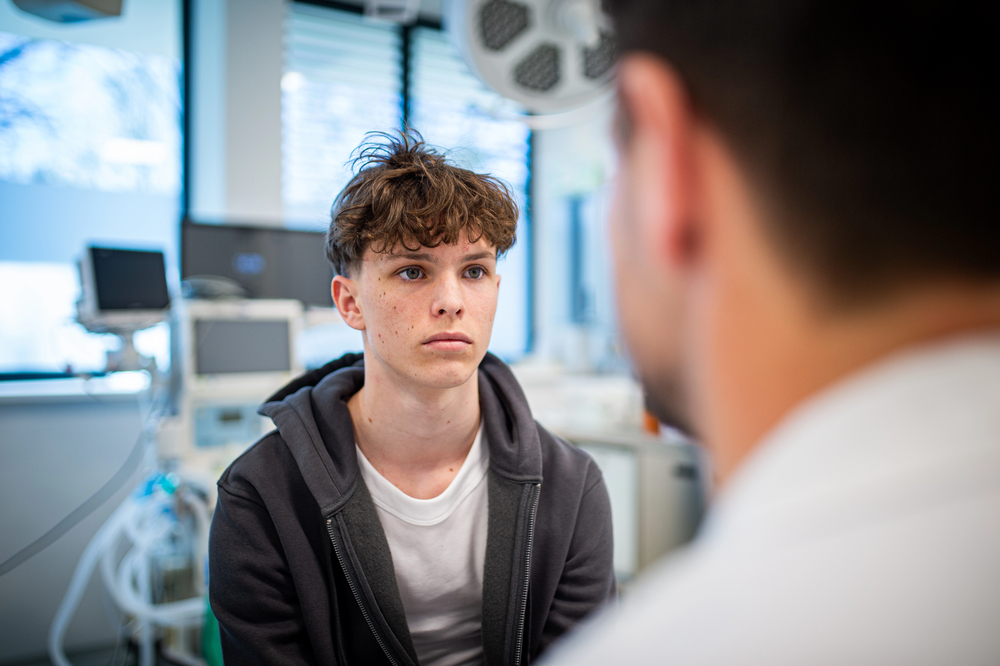Increasing attention has been given to prioritizing alternative ways to support people experiencing mental health crises.
A new article, published in BJPsych Bulletin, describes a trauma-informed, cross-cultural framework for responding to mental health crises that is gaining traction across the United Kingdom. Known as Comprehend, Cope, and Connect (CCC), the model emphasizes collaboration, compassion, and understanding over coercion, and early results suggest it is effective across a wide range of clinical and community settings.
The authors comprised a group of individuals from universities and NHS Trusts across the UK. They write:
“CCC is likely to be the next step in overcoming the public health problem of mental health crises, as indicated by a continuously growing evidence base and the widespread uptake of CCC. Helping people in crisis to understand the relevance of their past trauma, how it interacts with current hardship, and how their attempts at coping may be what is keeping the crisis state alive, will enhance the good work already being undertaken to support individuals accessing acute mental health services, and other services, who are in distress.”
This approach arrives amid growing recognition that standard psychiatric crisis care often relies on coercion, rapid containment, and narrowly biomedical models that fail to address the roots of distress. By focusing on the links between trauma, current stressors, and coping patterns, CCC reflects a shift toward crisis responses that prioritize human rights, reduce staff burnout, and adapt to diverse cultural contexts. The model also aligns with a broader movement to replace punitive or dehumanizing emergency interventions with care that is centered on the lived experience of those in crisis.
















“A new approach known as Comprehend, Cope, and Connect is reshaping mental health crisis care in the United Kingdom, with promising early results across inpatient and community settings” – this is absolute NONSENSE. Utter NONSENSE. For a start, to make such a claim, you have to understand the British NHS and mental health services today and the state they are in: even of those who seek mental health treatment, less then a quarter actually get treatment from a psychiatrist or a mental health ‘professional’. Secondly, this treatment modality (really not a new modality but just a new treatment ideology) is immimant support and useful as long as it lasts, but not addressing any of the fundamental issues, it is really like having a very expensive hire-a-friend which means when you stop paying them and subsequently go to hell nobody will notice. How pitiful things have become today. You can’t call yourselves antipsychiatry because you always seek recognition in their own evaluative terms. You are appeasers of the medical model, still, and can’t see it, just because you find words like compassion, trauma informed care and cross-cultural councelling. You are so easily swallowed up and spat out by these words that you cannot see the real terrain in it’s actuallity at all. Instead you have an optimistic but entirely illusory relationship with the real issues through mere words. And they are intellectual, academic words, not real words, not human words. And the real terrain you need to understand is the whole of society. Psychiatry is just a Punch and Judie show conducted by this diseased and insane society.
Report comment
Here in the UK, where even the insane are sane, but very unhappy, I used to enjoy my solitude. Now even that is too much. I find myself saying to myself from time to time: “oi listen mate, one is a crowd, so fuck off!” And hey presto. I’m gone.
Report comment
‘As CCC emphasizes compassionately understanding the reasons behind mental health crises, it assists with reducing common issues in the workplace in psychiatric settings, such as staff burnout, job dissatisfaction, compassion fatigue, and retention issues’ How can this reduce common issues in the work place the work place is driven like everything else by neoliberalism and the mad targets that are burnout. Lets all understand and be compassionate but lets change the system not the ‘ways of coping’ that ‘might be keeping the issues going’ its just rebranded CBT
Report comment